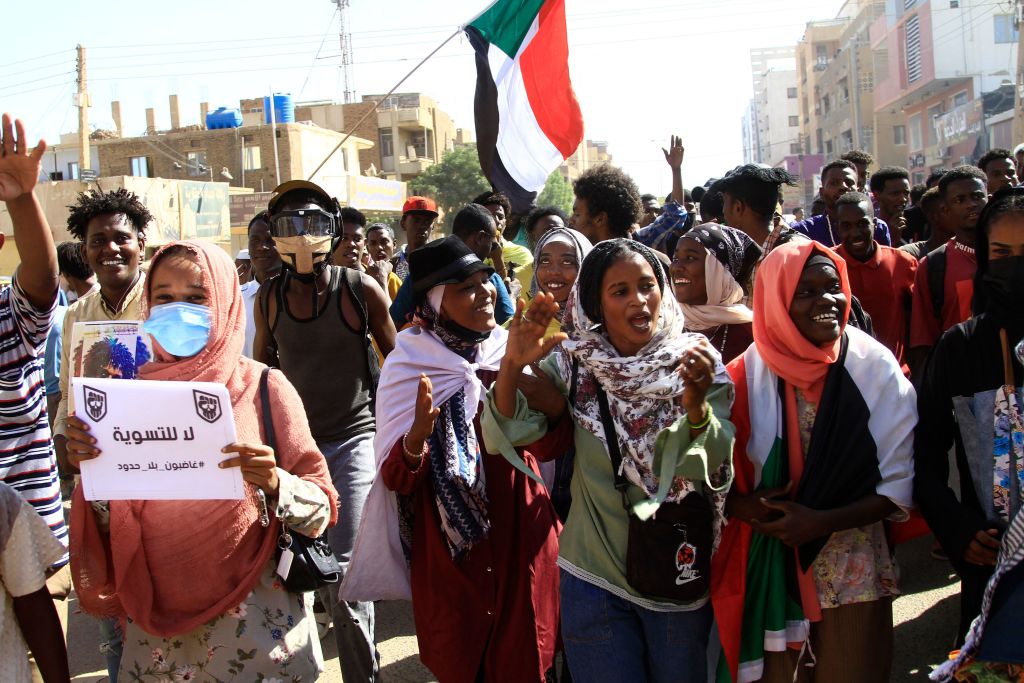ADF STAFF
In 2020, Zimbabwean journalist Hopewell Chin’ono published an article online that exposed government misuse of funds intended to help the country fight the COVID-19 pandemic. He was arrested a short time later and charged with inciting violence.
It would be the first of several arrests for Chin’ono, who has repeatedly posted comments critical of the government on his social media channels.
Zimbabwe’s constitution guarantees free expression, but in recent years authorities have cracked down on social media posts and other online activity deemed critical of the government. In December 2021, President Emmerson Mnangagwa signed the Data Protection Act, which criminalizes the publication of false information online.
Critics says the law is too broad and does not clearly define false information.
“The intent of the law isn’t to do with fake news, but to target one or two people. There are still debates on what is fake news around the world,” communications professor Wellington Gadzikwa told the Media Alliance of Zimbabwe conference soon after the law went into effect.
Zimbabwe joins Morocco, Sudan and Uganda as nations known to engage in what free speech advocates call “digital authoritarianism” to silence dissent and repress their citizens’ internet use, according to the Unfreedom Monitor project.
Crackdowns include licensing bloggers, targeting specific websites and shutting down internet access across a region or an entire country.
Six internet shutdowns over the past three years have made Sudan one of the continent’s most digitally repressive countries. The shutdowns have happened in direct opposition to the nation’s guarantees of free expression, privacy and internet access.
Shutdowns target protesters, who have used social platforms to organize, first against former dictator Omar al-Bashir and now against the junta whose October 2021 coup disrupted the planned transfer to civilian government.
The junta shut off Sudan’s internet access on the one-year anniversary of the coup, and, before that, on the third anniversary of al-Bashir’s ouster in June. In both cases, shutdowns have coincided with security forces violently attacking protesters.
“Frequent internet shutdowns remain a constant reminder that the government will go to great lengths to control access to and use of digital technologies for mobilization,” Sudanese media researcher Khattab Hamad wrote in blog post for the Collaboration on International ICT Policy for East and Southern Africa (CIPESA).
The shutdowns have failed to hobble protests. They’ve also failed to keep evidence of violent reprisals from going public. Rather, the shutdowns have significantly damaged Sudan’s struggling economy by disrupting online business, according to Hamad.
In Sudan, Russian-based misinformation has flooded Facebook and other social media sites. Russian and other outside actors also have used coordinated attacks to block Sudan’s resistance committees’ Facebook use, according to Hamad.
Sudan’s 2020 cybercrime law punishes the publication of lies and “fake news” and has been used by the junta to stifle opposition, Hamad notes.
Many countries engaging in digital authoritarianism do so by exercising their control over the internet through ownership of the infrastructure that carries it.
“Ownership and control of the international gateway systems give the government more influence in terms of restricting or throttling international traffic as part and parcel of digital authoritarianism,” South African analyst Admire Mare writes in the International Journal of Communication.
That gives governments the ability to control the speed, accessibility and availability of the internet, Mare writes.
Countries also issue the licenses that internet service providers need to operate on their networks, giving them another way to shape what citizens see and hear online.
As they work to regulate their citizens’ online use, Sudan, Zimbabwe and other digital authoritarians have found an ally in Chinese telecommunications giant Huawei. In 2021, Zimbabwe launched a Huawei-built $17 million expansion of its government-owned broadband internet in 2021 funded by the Eximbank of China.
Through subsidiaries Huawei controls 70% of Africa’s 4G mobile networks. Along with other Chinese companies, Huawei dominates the continent’s smartphone market.
From Morocco to South Africa, Huawei has installed technology known as “middleboxes” in 20 African countries. Middleboxes are points in the internet system at which information can be blocked, intercepted and even manipulated.
“Authoritarian African governments see the benefit of customized censorship mechanisms in the Huawei infrastructure,” Zimbabwean lawyer Arthur Gwagwa told German news agency Deutsche Welle. “They can use the vulnerability of the Chinese equipment for surveillance and other malicious purposes for them to hold on to political power.”

